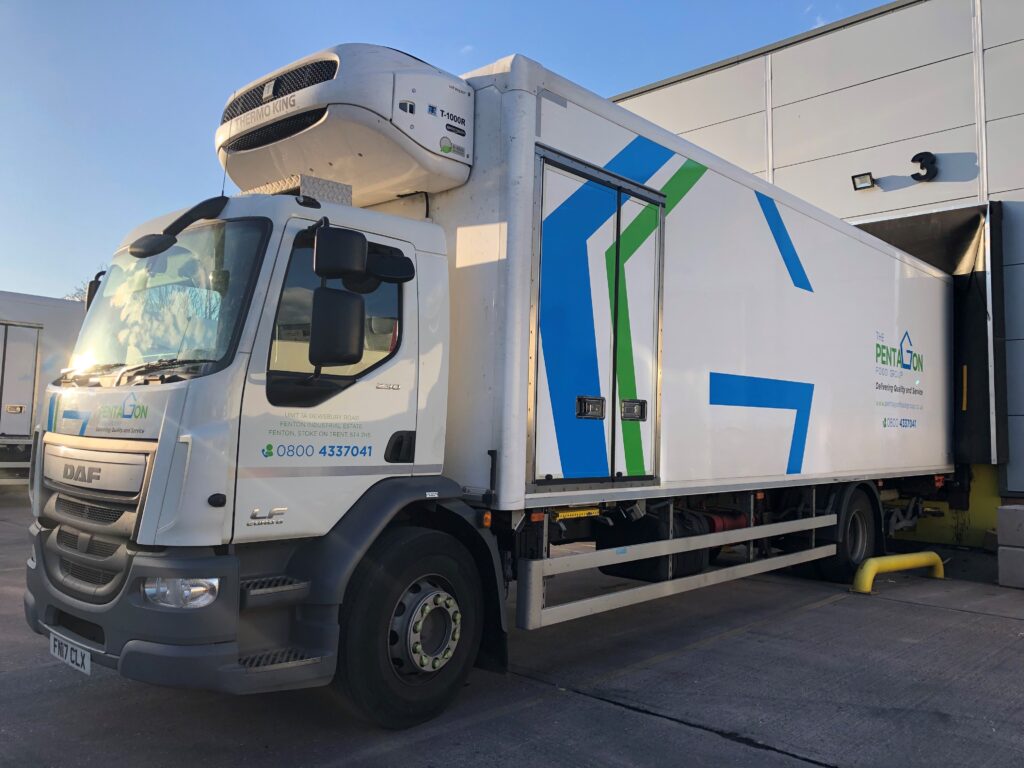What is Food distributor
A food distributor acts as a bridge between food producers and businesses, ensuring products reach their destinations efficiently. These businesses manage the sourcing, storage, and delivery of food products to outlets like restaurants, supermarkets, cafes, and catering services.
Types of Food Distributors
This blog explores the types of foodservice distributors in the UK and offers guidance on selecting the best partner to meet your business needs.
Foodservice distribution includes a network of companies and organisations that collect products from manufacturers, store them in warehouses, and deliver them to businesses. These distributors handle not only food but also essential non-food items like napkins, plates, and utensils. Some specialise in specific categories, like seafood or produce, while others offer broader services.
The storage and transport processes vary. Some distributors use refrigerated trucks for direct delivery, while others store goods temporarily in warehouses. By understanding the types of foodservice distributors, you can make informed decisions that save time, money, and effort.
There are several types of distributors when it comes to foodservice.
1. Broadline Distributors
Broadline distributors provide an extensive variety of products, ranging from frozen and chilled foods to non-food supplies like cleaning products and packaging materials.
- Key Characteristics:
- They are one-stop shops, making them convenient for businesses that need to purchase multiple items in one go.
- They offer competitive pricing, especially for bulk purchases.
- Their wide product range supports large-scale operations such as hotel chains, large restaurants, and supermarkets.
2. Specialty Distributors
Specialty distributors focus on niche markets, such as organic, vegan, gluten-free, or ethnic foods. These distributors cater to businesses targeting customers with specific dietary or cultural preferences.
- Key Characteristics:
- They provide expertise and advice tailored to niche markets, such as how to market vegan options or source ethical products.
- They cater to the rising demand for sustainable, health-conscious, and culturally diverse food products.
- Specialty distributors also focus on product traceability, ensuring businesses meet ethical and regulatory standards.
UK Stats & Trends:
- Around 42% of UK consumers actively prefer sustainable food options, driving the popularity of specialty distributors.
- Demand for organic food increased by 9.4% in 2024, showing a growing market for these products. For example, vegan and gluten-free cafes rely heavily on specialty distributors to meet customer demands.
3. Cash-and-Carry Distributors
Cash-and-carry distributors operate warehouse-style outlets where businesses can pick up the products they need.
- Key Characteristics
- Cash-and-carry is ideal for small businesses, caterers, and event organisers who may not require bulk purchases.
- They offer flexible purchasing options, allowing businesses to restock as needed rather than commit to large deliveries.
- Competitive pricing is a major draw, as businesses save on delivery fees.
Companies like Freshways Click & Collect are known for their cash-and-carry services. These facilities often integrate online platforms for easier order management.
UK Stats & Trends
- Over 70,000 independent food businesses in the UK rely on cash-and-carry distributors.
- Online orders now account for 20% of transactions, making digital integration essential for growth. For example, a small cafe might use cash-and-carry services to restock fresh produce and beverages every week.
4. Redistributors
Redistributors buy products in bulk from manufacturers and sell them in smaller quantities to local distributors or small businesses.
- Key Characteristics:
- Redistributors streamline supply chains, ensuring that small businesses can access products without having to purchase in large quantities.
- They serve as a critical link for regional distributors and small operators.
- Often, they specialise in specific categories, such as frozen foods or bakery supplies.
Read More: TOP FAQS ABOUT WHOLESALE FOOD DISTRIBUTORS
Choosing the Right Food Distributor for Your Business

With so many types of food distributors available, selecting the right partner is crucial for maintaining quality, efficiency, and profitability. For restaurant owners, having a distributor that delivers consistently high-quality products, on-time deliveries, and a wide range of options can make all the difference in running a smooth operation.
One such trusted partner is Pentagon Food Group. With over 1,500 UK businesses relying on their services, Pentagon Food Group is more than just a supplier—it plays a vital role in supporting cafes, restaurants, and foodservice businesses nationwide.
Pentagon Food Group offers a comprehensive range of food products, including premium frozen staples, fresh chilled goods, and essential pantry items. Whether you’re sourcing ingredients for a high-end restaurant or a busy takeaway, their selection ensures you get quality brands that your customers trust and love.
Beyond product variety, reliability is at the core of Pentagon Food Group’s service. Timely deliveries and a commitment to consistency mean restaurant owners can focus on their business without worrying about stock shortages or last-minute disruptions. With a customer-centric approach, Pentagon Food Group is not just a distributor—it’s a partner in your restaurant’s success.
For those looking to upgrade their food business with a dependable and quality-driven food distribution partner, Pentagon Food Group offers a solution designed to support growth and efficiency in the foodservice industry.






